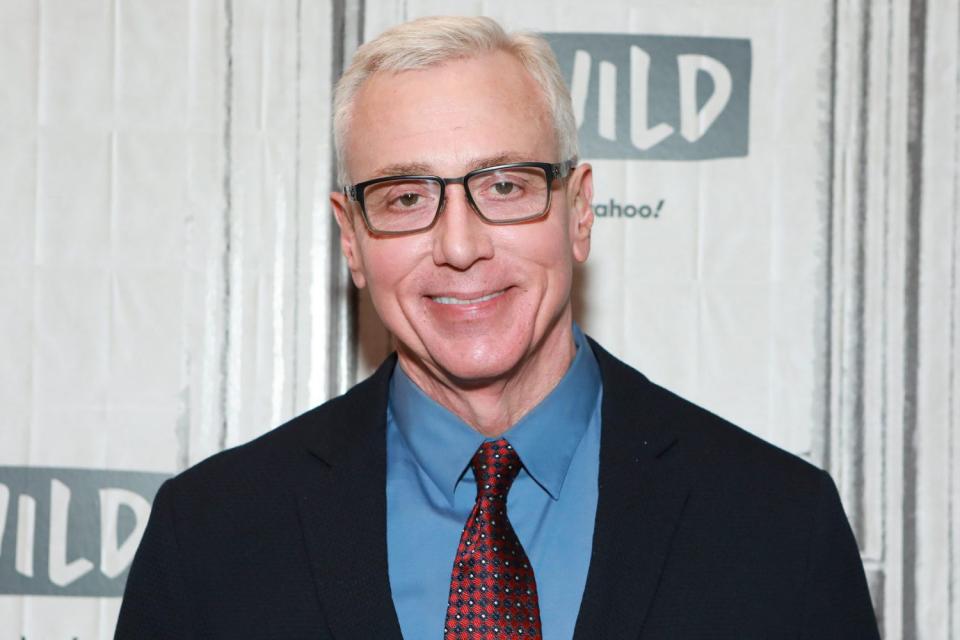Dr. Drew Urges Parents to 'Know the Difference' Between Parenting and Mental Health Problems

- Oops!Something went wrong.Please try again later.
Dr. Drew Pinsky is offering parents some important advice.
In a clip from a new episode of the Dads Save America podcast, shared exclusively with PEOPLE, the former Loveline host urges parents to do what they can to help their kids develop a healthy relationship with technology. The Mirror Effect author also encourages parents to "know the difference between a parenting problem and a mental health problem."
Noting that "parents get very confused" between the two, Pinsky clarifies, "if a kid stays out too late it's a parenting problem or if they talk back to you that's a parenting problem."
"But if you find weed in their backpack that's now a mental health problem," he continues. "It's gotten so bad, they're using so much that you're detecting it."
Never miss a story — sign up for PEOPLE's free daily newsletter to stay up-to-date on the best of what PEOPLE has to offer, from juicy celebrity news to compelling human interest stories.

Jason Mendez/Getty Images
RELATED: Dr. Drew Says He's Thinking About Running for Congress One Day
"If you detect behaviors that you're worried about that are problematic ... whatever you have access to, trust me, that is just the tip of the iceberg."
"They always hide it. No kid is 15 and totally forthcoming," he shares. "It just isn't the way we're constructed."
Pinsky then shares some things parents can look out for if they're concerned that their child is dealing with a "mood disorder."
"If you're seeing stuff that feels like a mood disorder — changes in their clothing, changes in their fingernail color, changes in the kids they're hanging out with, the sleep-wake cycles are off — this is a mental health issue," he explains. "This is time to see a doctor about it."
Though he notes some families are skeptical, "treatment really works" if you "get the kid to participate."
"That's really the challenging part of all of this, but boy if you have a kid that's participating in any kind of mental health service, just count your blessings," he says. "It will get better."

